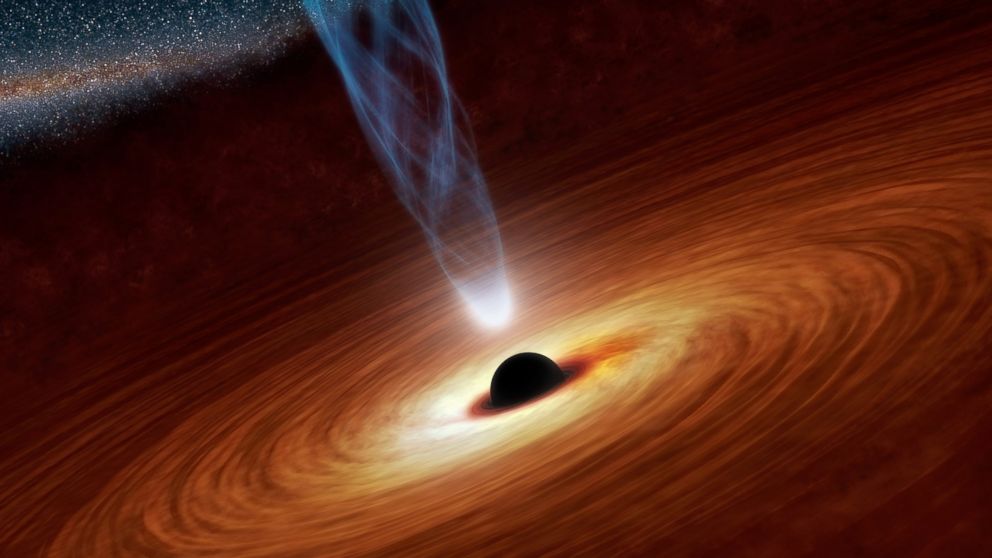Scientists Discover Brightest Quasar Ever Powered by Black Hole, Dating to Dawn of Time
The black hole dates back to dawn of time.

— -- In a galaxy far, far away, a colossal black hole 12 billion times more massive than our sun has been discovered by astronomers, sparking a new mystery about the early universe.
Located 12.8 billion light-years from Earth, astronomers discovered the behemoth black hole inside of a quasar that shines 420 trillion times brighter than the sun, according to an article published Wednesday in the journal "Nature."
The quasar is so bright, scientists say, because of the radiation emitted as matter is accelerated and sucked into the massive black hole.
The ancient quasar was believed to have been shining brightly when the universe was less than a billion years old. With the universe now dated at 13.8 billion years old, the quasar is shining much brighter and is extraordinarily bigger than what scientists would have expected for the ancient body.
There are 40 known quasars that date back to the first one billion years after the Big Bang, according to scientists, with each having a black hole with the mass of one billion suns. By comparison, the newly discovered quasar, called SDSS J0100+2802, is a giant among giants.
The sheer size of the black hole has posed a new question about how something so massive was able to form at the dawn of time.
"How can a quasar so luminous, and a black hole so massive, form so early in the history of the universe, at an era soon after the earliest stars and galaxies have just emerged?" Xiaohui Fan, a professor astronomy at the University of Arizona and co-author of the study, said in a statement. "And what is the relationship between this monster black hole and its surrounding environment, including its host galaxy?"
It's another mystery of the universe that astronomers will continue to ponder.



